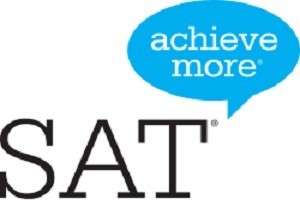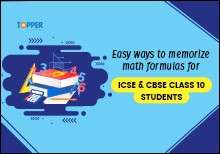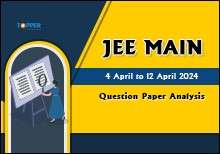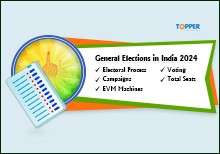All you need to know about SAT (Part 1)

We give you information on everything related to SAT.
By Rohit Gaikwad 26th May, 2016 | 06:46 pm
ShareWhat is SAT?
SAT, a standardized test is important and widely used when applying to American and Canadian universities. These exams are structured in order to evaluate the verbal, written, mathematical knowledge of the candidates. These exams are monitored and administrated by College Board, which is a non profit organisation. Applicants of undergraduate courses are required to give SAT exams and these exams are monitored under a limited time period. If a candidate is looking for admission in a particular subject then he/she should take that particular subject test as it will provide an insight into the subject knowledge.
Fees
A candidate is required to pay $52.5 (approx.) along with $42 in addition for Non- U.S regional fee
For particular subject tests, an additional amount of $26 as basic subject test fee is required.
SAT subject tests might need some required additional fee.
The old SAT vs the new SAT
The College Board has given SAT a complete makeover in order to link the class work and tests more closely to each other.
Since March 2016, SAT exams are designed to focus more on few things that are crucial and important for college and future careers.
It can also be termed as instructional experience that helps students in their academic as well as professional lives.
The New SAT was introduced on March 5, 2016 in USA and in India on May 7, 2016.
|
|
Old SAT |
New SAT |
|
Sections |
3 sections Maths Critical Reading Writing
|
2 sections Maths Evidence-based Reading and Writing
|
|
Essay |
Compulsory |
Optional |
|
Scoring |
Section scores 200-800 Total score 2400 Essay score included in Writing score
|
Section scores 200-800 Total score 1600 Separate score for essay
|
|
Penalty and answer choices |
− 1/4 point for each incorrect answer in multiple choice questions 5 answer choices per question
|
No penalty for incorrect answers 4 answer choices per question
|
|
Reading And Writing |
Reading passages draw from social sciences, humanities, and literature Vocabulary tested via sentence completion questions
|
Reading passages will be from significant historical or scientific documents, and may include informational graphics Passages will include complex structure and vocabulary in context Passage based grammar including punctuation
|
|
Math |
Arithmetic Algebra Geometry Calculator permitted in all Math sections
|
Arithmetic Algebra Geometry Trigonometry Some no-calculator sections
|
|
Total Testing Time(excluding breaks) |
3 hours and 45 minutes excluding breaks |
3 hours without Essay
3 hours and 50 minutes with Essay (optional) excluding breaks |
|
Components |
Critical Reading
Writing
Mathematics
(Calculator allowed) Essay |
Evidence-Based Reading and Writing It comprises of two tests: A reading test and a Maths: One section with calculator allowed |
|
Vocabulary |
Emphasis on vocabulary, often in limited contexts |
Greater emphasis on the meaning of words in context |
|
Math Content |
No Trigonometry, no Complex Numbers |
Will include advanced Maths involving Trigonometry and Complex Numbers |
|
Use of Calculator |
Calculator permitted in every math section |
Calculator allowed only in the longer of the two Maths sections |
|
No. of Answer choices per question |
5 answer choices per question |
4 answer choices per question |
|
Scoring |
Complex scoring |
Right-only scoring (No penalty for incorrect marking) |
|
Essay |
Mandatory first section of the test (25 minutes, timed) |
Optional (50 minutes, timed). |
|
Score Reporting |
No official composite score
|
Composite Score ranging from 400 to 1600
|
|
Test Score |
None |
3 test scores (10-40 each), 2 cross-test scores (10-40 each), and 7 sub-scores (1-15 each) - providing added insight. |
As the entire SAT exam was revamped, a new list time structure and new number of questions have been introduced.
Old SAT
|
|
Time Allotted |
Number of Questions |
|
Critical Reading |
70 |
67 |
|
Writing |
60 |
49 |
|
Mathematics |
70 |
54 |
|
Experimental |
25 |
Varied |
|
Essay |
25 |
1 task |
|
Total |
250 |
170 + Essay Task |
New SAT
|
|
Time Allotted |
Number of Questions |
|
Reading |
65 |
52 |
|
Writing |
35 |
44 |
|
Mathematics |
80 |
58 |
|
Essay |
50 |
1 task (optional) |
|
Total |
180 + 50 |
154 + 1 task ( optional) |
Source: www.manyagroup.com
More from Education
Important Resources
- Education Franchisee opportunity
- NCERT Solution
- CBSE Class 9 Mathematics
- NCERT Solutions for class 10 Science
- Sample Papers
- CBSE Class 9 Science
- NCERT Solutions for class 10 Maths
- Revision Notes
- CBSE Class 10 Hindi
- CBSE Class 10 English
- CBSE Class 10 English
- CBSE Class 10 Social Studies
- CBSE Class 10 Science
- CBSE Class 10 Mathematics
- Career In Science After 10
- Career In Commerce After 10
- Career In Humanities/Arts After 10
- NCERT Solutions for Class 10
- NCERT Solutions for Class 11
- Business Studies Class 12 CBSE project





